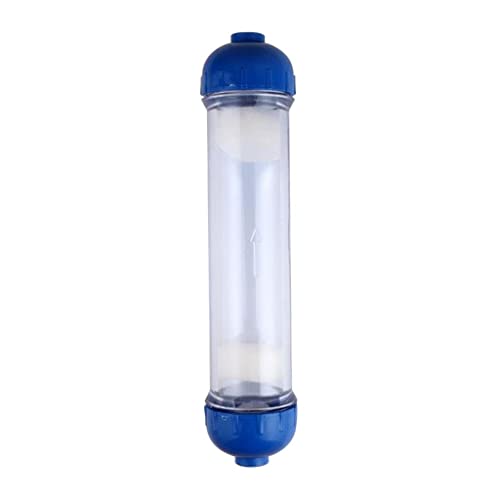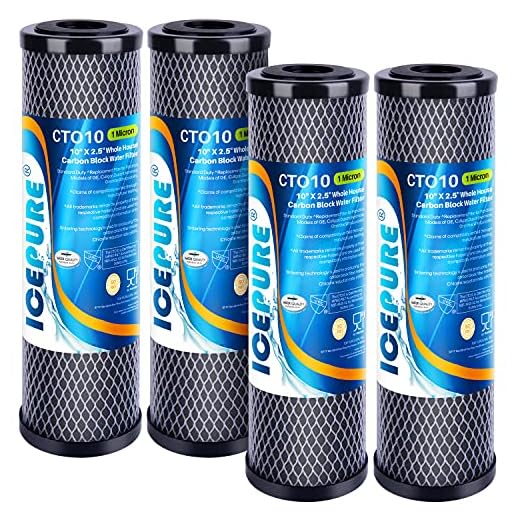




Installation Requirements
Considering the installation requirements for water filters is crucial before making a purchase. Different types of filters have varying installation processes. For instance, pitcher filters simply need to be filled with water and can be used immediately. Under-sink models may require more complex setup, including plumbing adjustments. Wall-mounted options might need additional drilling and hardware installation to secure them properly.
Evaluating your plumbing system is essential when selecting a water filter. Ensure compatibility with your existing setup to avoid costly modifications. Many manufacturers provide detailed installation instructions along with their products. Additionally, while some homeowners prefer a DIY approach, enlisting a professional can ensure that the filter is correctly installed, minimizing potential leaks and maximizing filter efficiency.
DIY vs. Professional Installation
Choosing between DIY installation and hiring a professional can significantly influence your experience with a water filter system. Many models come with comprehensive instruction manuals, making them accessible for individuals who feel confident tackling home improvement projects. Selecting a DIY approach can save money upfront and provide a sense of accomplishment. However, it requires a willingness to learn and follow instructions meticulously, especially when dealing with plumbing.
On the other hand, professional installation often guarantees that the system will be set up correctly without any mistakes. Professionals bring expertise and experience, which can mitigate risks associated with improper installation, such as leaks or system inefficiency. For those who prefer peace of mind and might be uncertain about their skills, investing in professional help can be a wise choice. Ultimately, the decision may hinge on factors like budget, personal ability, and the specific complexity of the chosen water filter system.
Maintenance and Upkeep
Routine maintenance of water filters is essential to ensure their optimal performance and longevity. Regularly checking the filter status is advised, as many systems feature indicators that signal when it’s time for replacement or cleaning. For cartridge-based systems, following the manufacturer’s timeline for changing filters will prevent buildup of contaminants and enhance water quality.
Cleaning procedures can vary depending on the type of water filter. Some models may require simple rinsing with water, while others might necessitate more thorough disassembly and scrubbing of various components. Following care tips outlined in the user manual helps prevent malfunction and ensures the system continues to function effectively, delivering fresh and safe drinking water for your household.
Routine Cleaning and Care Tips
Regular cleaning of water filters is essential to ensure optimal performance and longevity. Depending on the type of filter, different cleaning schedules and methods may apply. For example, activated carbon filters typically require less frequent attention, while reverse osmosis systems often have specific maintenance requirements due to their more complex setup. It’s advisable to consult the manufacturer’s guidelines for each filter type, as this will provide tailored care instructions.
Changing filter cartridges on time is a critical part of upkeep. Most filters come with a recommended replacement schedule based on usage and water quality. Ignoring these schedules can lead to reduced filtration efficiency and potential health risks. Keeping a log or using reminders can help homeowners stay on track with replacements and maintenance tasks. Regularly inspecting connections and hose fittings is also wise to prevent leaks or pressure changes.
Cost Considerations
When evaluating water filters, it’s essential to consider both the initial purchase price and the long-term maintenance expenses. The market offers a wide range of options, from budget-friendly choices to high-end systems. Each type often comes with different filter replacement costs and longevity. Understanding these factors can help you avoid unexpected expenses down the line.
Additionally, some water filtering systems may require installation by a professional, which can add to your overall cost. Be mindful of any recurring expenses for filter replacements or additional service fees. Researching the average lifespan of filters for different models can provide a clearer picture of future costs, helping you make a more informed decision. Balancing upfront costs with long-term savings potential is crucial in your selection process.
Budgeting for Purchase and Maintenance
Investing in a water filter involves considering both initial costs and ongoing expenses. Prices can vary widely depending on the type, brand, and features of the unit. Basic pitcher filters might seem inexpensive at first, but may require frequent replacement cartridges. Conversely, whole-house systems can have a higher upfront cost, yet they might be more economical over time due to longer-lasting filters. When comparing options, it’s crucial to factor in the price of replacement components and any associated installation fees.
Routine maintenance is another key component of budgeting for water filters. Some systems may require professional servicing, which can add to overall costs. DIY maintenance can save money, but it requires a certain level of knowledge to ensure it’s done correctly. Additionally, consider the potential need for water testing services to monitor filter performance. All these factors together will help paint a clearer financial picture for both initial and long-term commitments to your chosen water filtration system.
FAQS
What are the most important features to consider when comparing water filters for home use?
The most important features to consider include filtration type (such as activated carbon, reverse osmosis, or UV), flow rate, certification standards, capacity, ease of installation, and maintenance requirements.
How do I decide between DIY installation and hiring a professional for my water filter?
Consider your comfort level with plumbing and installation tasks. If you have experience with home improvement projects, DIY may be feasible. If you’re uncertain or the installation appears complex, hiring a professional is a safer choice.
How often should I clean and maintain my water filter?
Maintenance frequency varies by filter type, but generally, it’s advisable to check and clean your filter every 6 months and replace cartridges according to the manufacturer’s recommendations, which could range from every 3 to 12 months.
What are some cost considerations when choosing a water filter?
When budgeting for a water filter, consider the initial purchase price, ongoing maintenance costs (like replacement filters), and any potential installation fees. It’s important to weigh these costs against the benefits of improved water quality.
Are there any specific certifications I should look for in a water filter?
Yes, look for filters certified by organizations like NSF International or the Water Quality Association. These certifications ensure the filter meets specific performance and safety standards for removing contaminants.
Related Links
What Are the Key Features of the Best Home Water Filters
How to Evaluate Different Water Filter Brands
Roundup of Best Water Filter Brands for Home Use in 2023

